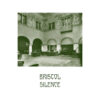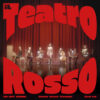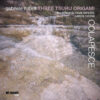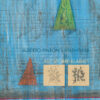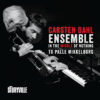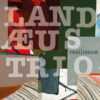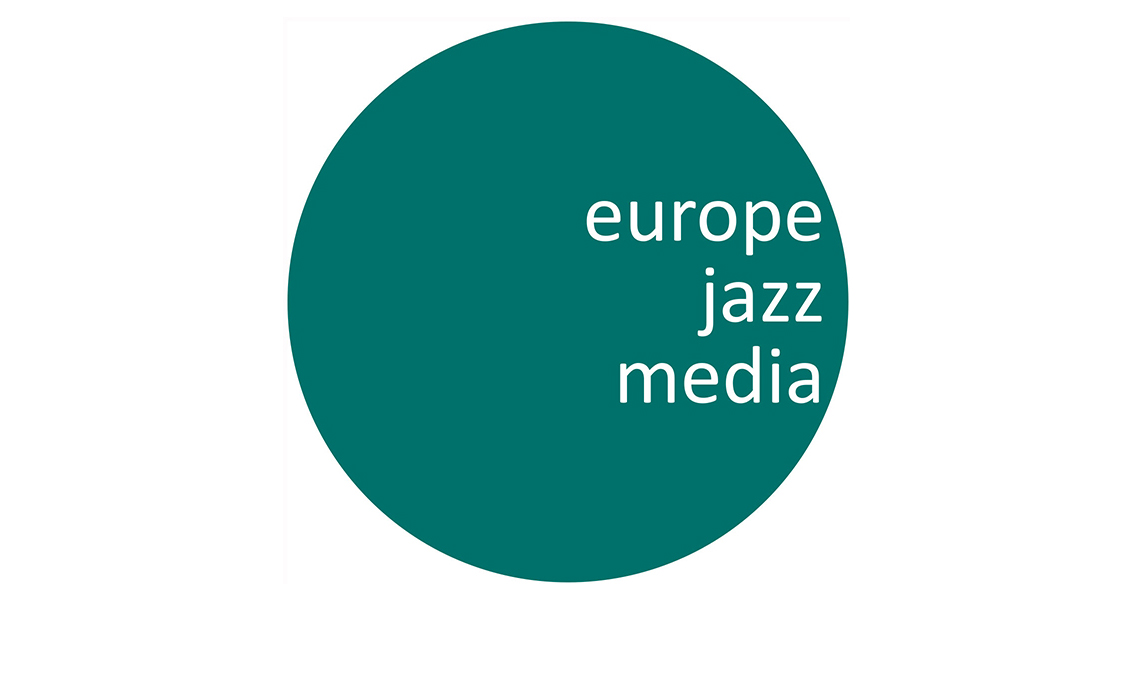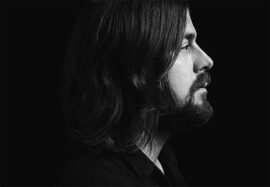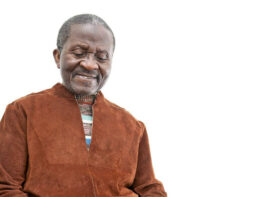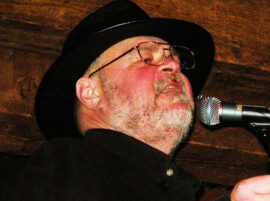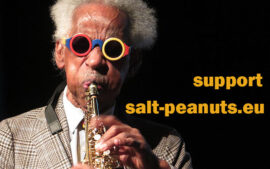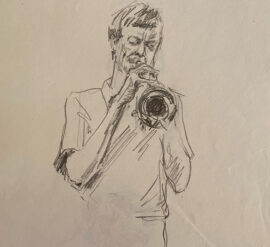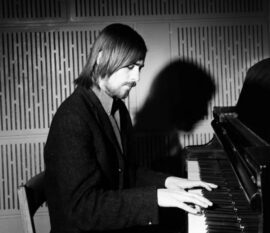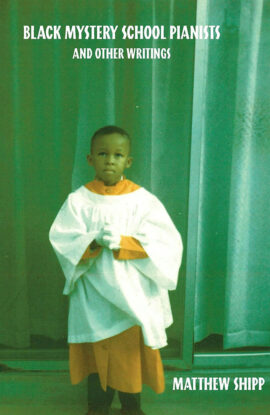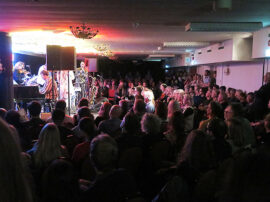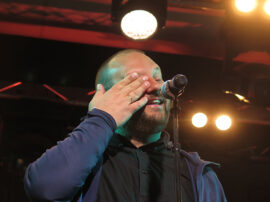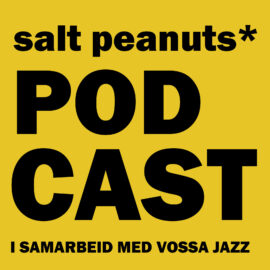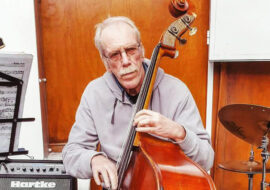Sommeren er på hell, men de europeiske jazzredaksjonene tar ikke ferie, i alle fall ikke mer enn høyst nødvendig mellom alle festivalene. Og her er de mest spennende innspillingene man har lyttet på den senere tiden:
Mike Flynn, Jazzwise:
JULIAN SIEGEL JAZZ ORCHESTRA «Tales From the Jacquard» (Whirlwind Recordings)
Anna Filipieva, Jazz.Ru:
BENITO GONZALEZ «Sing to the World» (Rainy Days)
Jan Granlie, salt-peanuts.eu:
ROY BROOKS «Understanding» (Cellar Live/Reel to Reel)
Christine Stephan, JAZZTHETIK:
KUU! «Artificial Sheep» (ACT)
Viktor Bensusan, jazzdergisi.com:
DANIEL HERSKEDAL «Harbour» (Edition Records)
Henning Bolte, Written in Music:
KILLING POPES «Ego Kills» (Clean Feed)
Sebastian Scotney, LondonJazz News (UK):
RUBEN FOX «Introducing…Ruben Fox» (Rufio Records)
Cim Meyer, Jazz Special:
CLAUDIO JR DE ROSA JAZZ 4ET «Jazz Getxo» (Errabal Jazz)
Lars Mossefinn, Dag og tid:
ANGRUSORI «Live at Tou» (Hudson Records)
Matthieu Jouan, citizenjazz.com:
THE KILLING POPES «Ego Kills» (Clean Feed)
Axel Stinshoff, Jazz thing:
VIJAY IYER «Uneasy» (ECM)
Luca Vitali, Giornale della Musica:
GIOVANNI GUIDI «A Ojos de Gato» (CAM Jazz)
Madli-Liis Parts, Muusika:
UMA «Wishing Well» (Myndstream)
Paweł Brodowski, Jazz Forum:
ATOM STRING QUARTET & SZCZECIN PHILHARMONIC WIND QUARTET «Karłowicz Recomposed» (Filharmonia Szczecin)
Why did I choose –
Anna Filipieva:
The fiery (and fierce) pianist Benito Gonzalez, the ardent McCoy Tyner’s follower who also finds his own voice on the changing jazz scene, chose to release his latest album on a Russian label – not the first occurrence of an American jazz artist on a Russian imprint, but definitely the most successful so far, as it was all over the U.S. jazz charts since its release this May. Gonzalez teams up with a diverse bunch of partners: two drummers who alternate on different tracks – the American Jeff «Tain» Watts’ and the Russian Sasha Mashin; two bassists, Christian McBride and Essiet «Okon» Essiet; two trumpet players, the Black American Music veteran Nicholas Payton and the up-and-coming Josh Evans… The aural diversity is overwhelming, as Gonzalez not only unleashes a passionate pianistic soundstream (which he is a master of,) but carefully adjusts rhythmic and dynamic features of said sounstream to the different manners in the kaleidoscope of his partners – which is somehow more exciting as an album (not just a succession of tracks, but a large form) than the Venezuela-born, U.S.-based pianist’s many earlier efforts.
Jan Granlie:
The American drummer Roy Brooks was on this planet from March 9,1938 to November 15, 2005. He was born in Detroit, and started playing drums as a child, and his earliest experiences of music came through his mother, who sang in church. He was a skilled basketball player in his teens and received a scholarship to attend the Detroit Institute of Technology, a study that lasted only three semesters, when instead of studying, he went on tour with Yusef Lateef. After a time with Lateef and Barry Harris, he played with the Beans Bowles and with the Four Tops in Las Vegas. He played with Horace Silver from 1959 to 1964, including on the album «Song for My Father», and in 1963 he released his first album as a leader. He then freelanced in New York City through the 60s and early 1970s, playing with Lateef again from 1967 to 70, Sonny Stitt, Lee Morgan, Dexter Gordon, Chet Baker, Junior Cook, Blue Mitchell, Charles McPherson, Pharoah Sanders, Wes Montgomery, Dollar Brand, Jackie McLean, James Moody, Charles Mingus and Milt Jackson. On the recording «The Free Slave» from 1970 he collaborated with Cecil McBee and Woody Shaw, and later in 1970 he joined Max Roach band Boom, and in 1972 he started the ensemble The Artistic Truth. Brooks concerts often featured unusual instruments such as saws and drums with vacuum tubes set up to adjust the pitch. He eventually gained a reputation for his often bizarre behavior on and off stage, and occasionally sought treatment to improve his mental illness.
On «Understanding», we meet him with trumpeter Woody Shaw, saxophonist Carlos Garnett, pianist Harold Mabern and bassist Cecil McBee, in a live recording recorded by Kevin Gray and the Left Bank Jazz Society at The Famous Ballroom in Baltimore on November 1, 1970 released on 3 LPs on 180 gram vinyls and 2 CDs, with a comprehensive booklet with rare photos, and interviews with Carlos Garnett and Cecil McBee. In addition, we get a text from the journalist Herb Boyd, who was a good friend of Brooks, the alto saxophonist Charles McPherson, who grew up with Brooks, and drum colleague Louis Hayes and others. The project was created following a request from Reel to Real Recordings to make a positive contribution to Black Lives Matter. The idea was a celebration of the talent, courage and spirit of the black musicians who created a timeless and universal art, with the recognition that the injustices of 50 years ago are still with us. All proceeds from the sales album go directly to The Detroit Sound Conservancy.
It all starts with a short introduction, before it all «races» away with the song «Prelude to Understanding», which after just over 20 minutes turns into «Understanding», as you have previously heard on the album «The Free Slave» released in Brooks name in 1972, starring both Shaw and McBee. Here they take it down a bit, but at the same time the song is filled with energy from Brooks in the background, and it feels like being in the middle of a jamsession from the 60s or 70s with an extremely ongoing Woody Shaw in the «driver seat».
And right from the start, Brooks is kicking Shaw to perform to the maximum. We get consistently long songs, where the shortest, closing track «The Theme» lasts just over four minutes, while the longest, «Taurus Woman» lasts just over half an hour. I remember back in these times when a number of American musicians visited Scandinavia, and put the small clubs around to a boil. And this session is no exception. Here it’s about playing the other musicians «off» the stage, and all five do what they can to make it happen.
And none of the musicians settle for «a round or two» when they do solos. Here they take the whole journey, and it sounds like they do not give up until the brain clearly stops them. And at the back it boils all the way in Brooks drums, and he kicks and strikes in all directions, but never so much that the others fall off. Lovely and greedy tough!
This has become one of the toughest club concerts I have ever heard on record, especially when it comes to energy discharges, which is on a par with some records and concert experiences I have had with, for example, the George Adams / Don Pullen Quartet. And the good thing about this live recording was that it is with some of the many musicians who also toured around small, remote jazz clubs in Northern Europe at that time. I think there were many who really discovered the good jazz at these concerts. And had this gang visited a club near where I was at the time, I would have gotten new favorites. But here we get them on 3 LPs (or 2 CDs), which will be played at volume 11.5 for a long time to come.
Henning Bolte:
Ego Kills is as disturbing, unsettling as it is entertaining, rough as it is refined, undermining as it is creatively constructive. It makes turns and bifurcations but leaves a lot to its listeners.
Berlin drummer Oliver Steidle has a remarkable, stupefying way of fanning out rhythm patterns, superimposing and crossfading them, operate them as sliding panels and agile rotating parts thereby generating kaleidoscopic hyper- and surrealistic musical sceneries, sceneries of rich imagination spiced up with good doses of humor. Linearity becomes largely dissolved in it. Reality particles get dispersed and at the same time are strongly connected by a relentlessly ticking beat. Through its clarity, control, and consistency it never feels overloaded but as a liberating wonderland exorcising present nightmares of daily life.
It works by virtue of a highly agile generative framework that emerged from the fruitful collaboration of Oliver Steidle and Dan Nicholls, a real stroke of luck. Keyboarder Nicholls acts both as a contributing musician and as a visionary producer who, above all, ensures that the strengths and magics of Steidle and the other featured musicians – quite a potent crew – are brought to full effect: Frank Möbus (el-g), Phillip Gropper (sax) Phil Donkin (el-b), Jelena Kuljic (voc, sampling) and Nathalie Sandtorv (voc, sampling).
It’s a very own universe not only of sounds that the Popes conjure. It’s a universe enlivened with mythical creatures inspiring the music as well as acting in and through the music. In short, as popes they take the freedom to summon their own deities and celebrate them amid the horrors, disgust, chaos, drivel, pomposity, grandness and joy of present everyday life. It’s a transcendental attitude and quality enabling to enter and give shape to some freeing zones (and leave behind the pontifical). It’s music with a cause … and an answer to the question how music and music making relates to social and political realities.
Sebastian Scotney:
LJN reviewer Adam Sieff (LINK TO REVIEW) wrote that tenor saxophonist «Ruben Fox has made a highly entertaining calling card that displays his considerable strengths as a producer, arranger, songwriter and instrumentalist with skill, artistry, humour and emotion.» This is a joyful album made in New York, and there are classy vocalists involved too, notably Samara Joy and South African Vuyo Sotashe. Album highlight is «So Much Joy», which is a good description of the whole album, which is released on Reuben James’ Rufio label.
Viktor Bensusan:
Daniel Herskedal plays one of the first rhythm instruments in the history of jazz: tuba. Daniel Herskedal’s compositions are played on NYC based WQXR, one of the most listened and prestigious classical music radio stations in the world. Daniel Herskedal delves into the Scandinavian as well as the Middle East musical traditions.
His trio on the Harbour album is remarkable; Eyolf Dale on piano and celesta with his subtle intrusions and Helge Andreas Norbakken on drums and marimba with his utmost care as if performing lullabies for children who prefer listening to the complementary rhythms until the end of the melodies and thus staying awake instead of going to sleep.
Cim Meyer:
The latest releases from the Getxo International Jazz Festival Group Contest have had a high level on all parameters: Musicianship, compositions, soloists, group interplay, sound quality etc. And with Claudio Jr. De Rosa’s international quartet (Italian-Hispanic-Lithuanian) a release from the Getxo Festival Contest enters this chart for the first time. Hopefully the group will last, and future releases will doubtlessly consolidate their reputation in the field of modern jazz.
Paweł Brodowski:
Here comes the newest effort by the great Polish jazz string quartet which joins forces with a wind quartet from the Szczecin Philharmonic (including flute, oboe, clarinet, bassoon) to perform the music of the legendary classical composer Mieczysław Karłowicz (1876 – 1909). 11 songs from Karłowicz’s early romantic period have been „recomposed” by the members of the ATQ, offering sophisticated arrangements, full of nuance, melodic invention, and a touch of jazz in brief improvisations. The performing skills of all invloved musicians are truly admirable. A musical feast!
The previous takes of the Atom String Quartet at classical music include works by such contemporary composers as Penderecki, Lutosławski, Szymanowski, Bacewicz and Górecki.
Matthieu Jouan:
*Following «Ego Pills», this new album gets more nervous and convokes a bunch of serious Berliner hard-workers. Oliver Steidle still loves words and voices, specially the one of anarchist Emma Goldman. The Killing Popes is a inspired killer gang!


